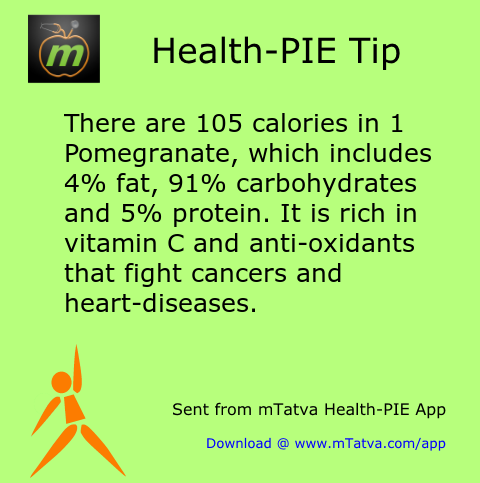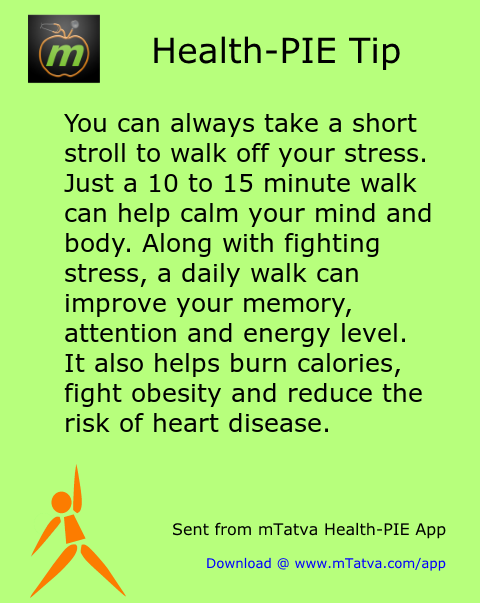
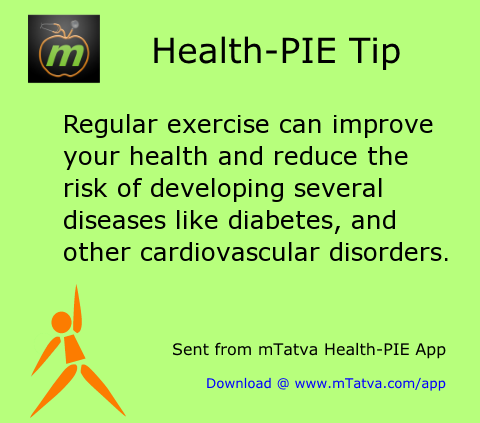
Regular exercise can improve your health and reduce the risk of developing several diseases like diabetes, and other cardiovascular disorders.
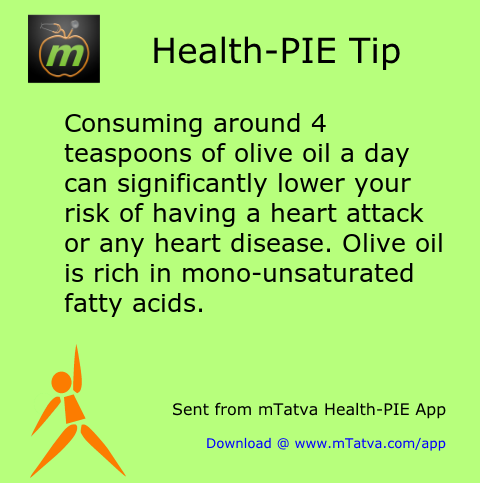
Consuming around 4 teaspoons of olive oil a day can significantly lower your risk of having a heart attack or any heart disease. Olive oil is rich in mono-unsaturated fatty acids.
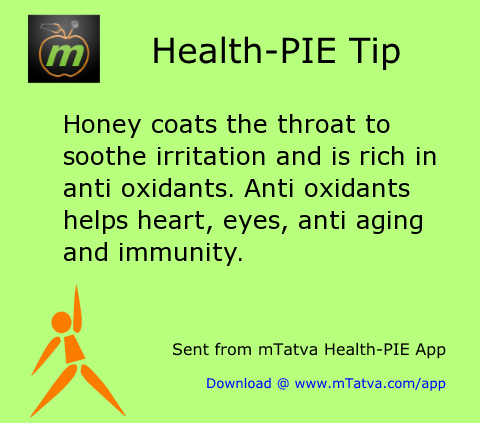
Honey coats the throat to soothe irritation and is rich in anti oxidants. Anti oxidants helps heart, eyes, anti aging and immunity.
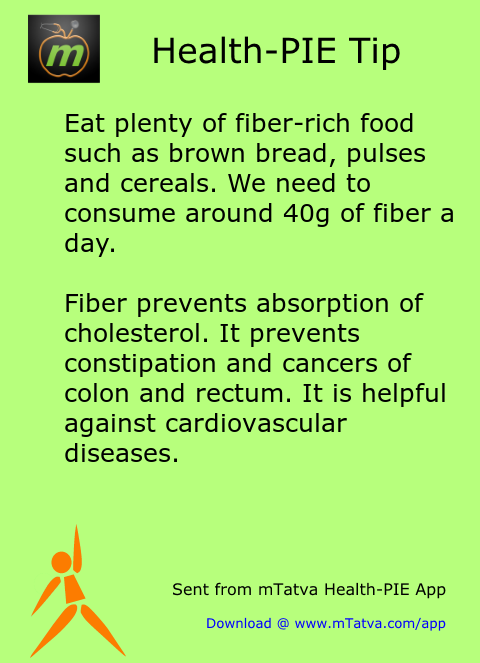
Eat plenty of fiber-rich food such as brown bread, pulses and cereals. We need to consume around 40g of fiber a day.Fiber prevents absorption of cholesterol. It prevents constipation and cancers of colon and rectum. It is helpful against cardiovascular diseases.
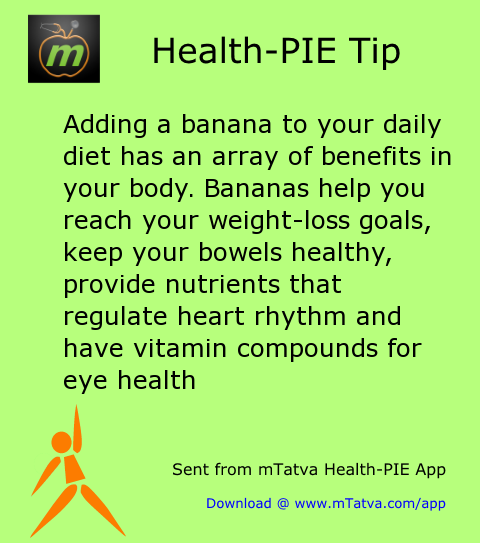
Adding a banana to your daily diet has an array of benefits in your body. Bananas help you reach your weight-loss goals, keep your bowels healthy, provide nutrients that regulate heart rhythm and have vitamin compounds for eye health
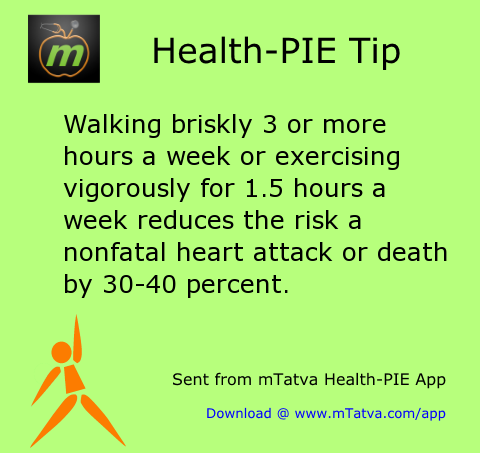
Walking briskly 3 or more hours a week or exercising vigorously for 1.5 hours a week reduces the risk a nonfatal heart attack or death by 30-40 percent.
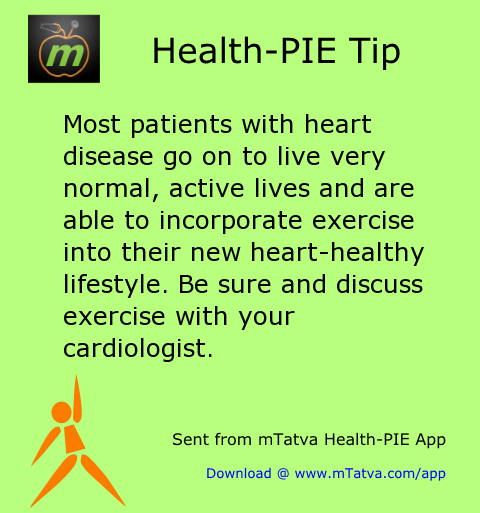
Most patients with heart disease go on to live very normal, active lives and are able to incorporate exercise into their new heart-healthy lifestyle. Be sure and discuss exercise with your cardiologist.
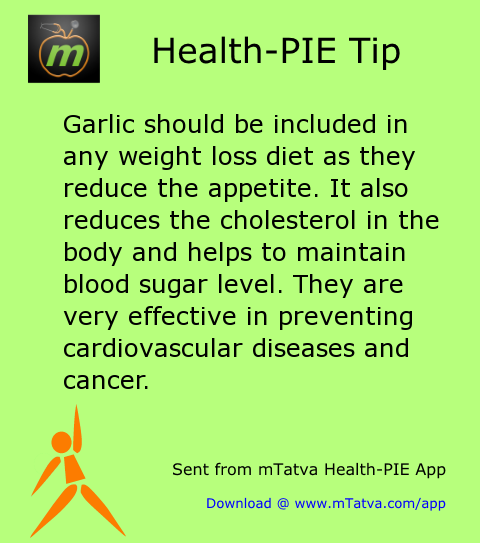
Garlic should be included in any weight loss diet as they reduce the appetite. It also reduces the cholesterol in the body and helps to maintain blood sugar level. They are very effective in preventing cardiovascular diseases and cancer.
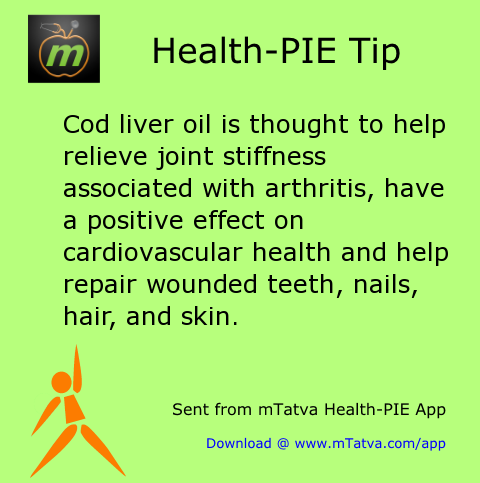
Cod liver oil is thought to help relieve joint stiffness associated with arthritis, have a positive effect on cardiovascular health and help repair wounded teeth, nails, hair, and skin.
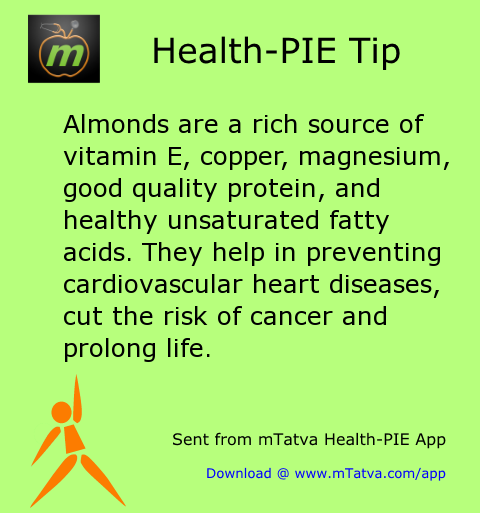
Almonds are a rich source of vitamin E, copper, magnesium, good quality protein, and healthy unsaturated fatty acids. They help in preventing cardiovascular heart diseases, cut the risk of cancer and prolong life.
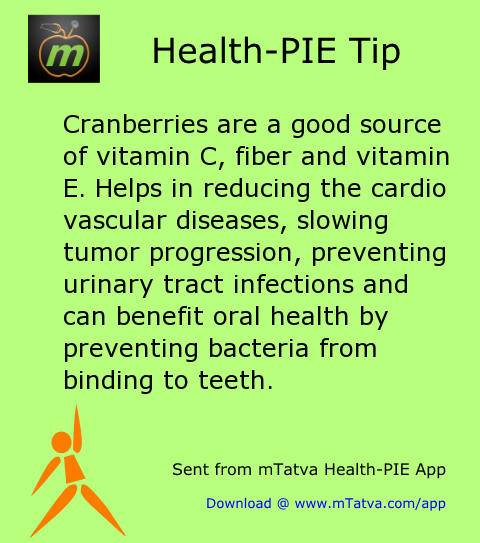
Cranberries are a good source of vitamin C, fiber and vitamin E. Helps in reducing the cardio vascular diseases, slowing tumor progression, preventing urinary tract infections and can benefit oral health by preventing bacteria from binding to teeth.
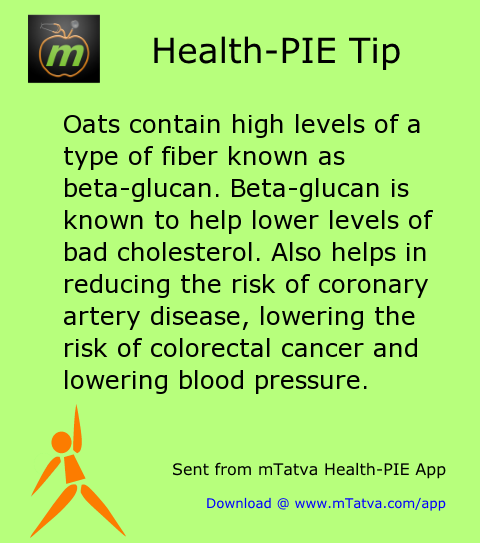
Oats contain high levels of a type of fiber known as beta-glucan. Beta-glucan is known to help lower levels of bad cholesterol. Also helps in reducing the risk of coronary artery disease, lowering the risk of colorectal cancer and lowering blood pressure.
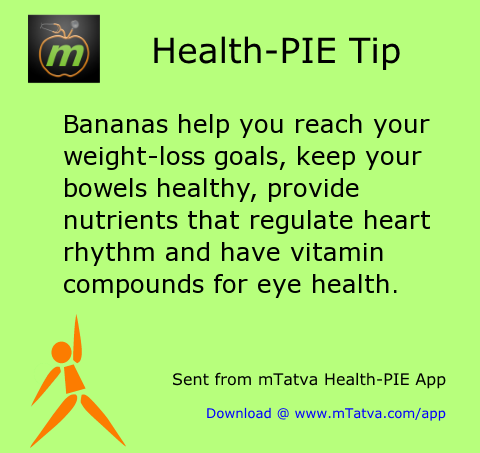
Bananas help you reach your weight-loss goals, keep your bowels healthy, provide nutrients that regulate heart rhythm and have vitamin compounds for eye health.
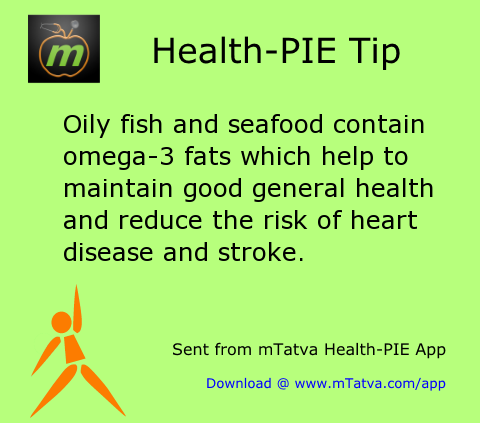
Oily fish and seafood contain omega-3 fats which help to maintain good general health and reduce the risk of heart disease and stroke.
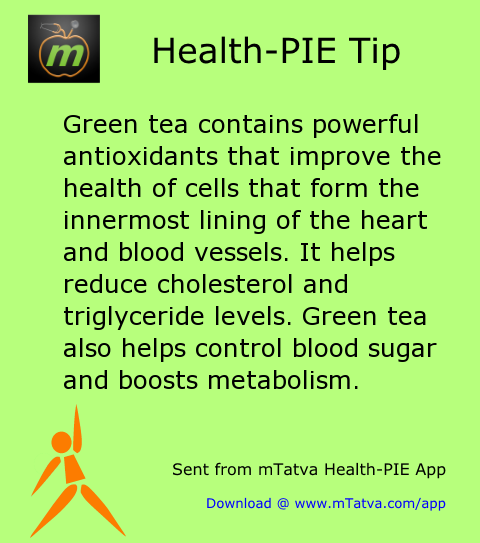
Green tea contains powerful antioxidants that improve the health of cells that form the innermost lining of the heart and blood vessels. It helps reduce cholesterol and triglyceride levels. Green tea also helps control blood sugar and boosts metabolism.
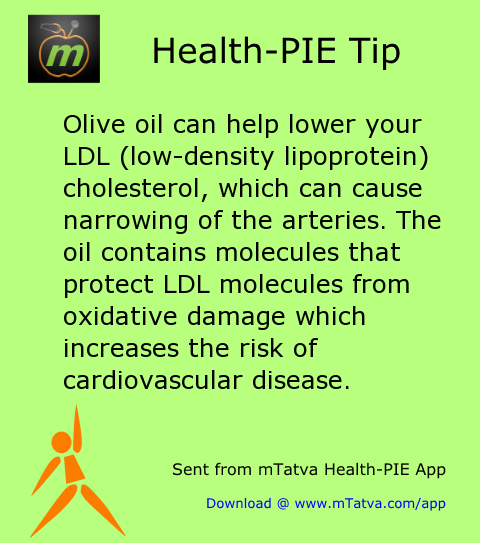
Olive oil can help lower your LDL (low-density lipoprotein) cholesterol, which can cause narrowing of the arteries. The oil contains molecules that protect LDL molecules from oxidative damage which increases the risk of cardiovascular disease.
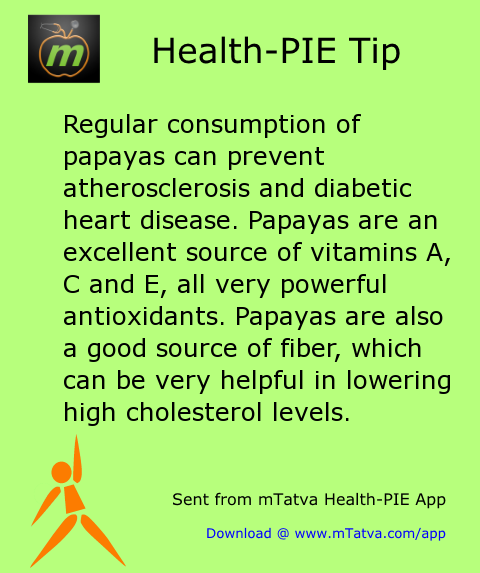
Regular consumption of papayas can prevent atherosclerosis and diabetic heart disease. Papayas are an excellent source of vitamins A, C and E, all very powerful antioxidants. Papayas are also a good source of fiber, which can be very helpful in lowering high cholesterol levels.
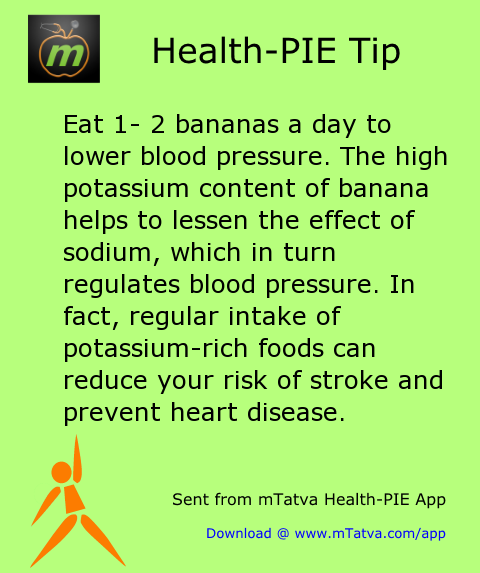
Eat 1- 2 bananas a day to lower blood pressure. The high potassium content of banana helps to lessen the effect of sodium, which in turn regulates blood pressure. In fact, regular intake of potassium-rich foods can reduce your risk of stroke and prevent heart disease.
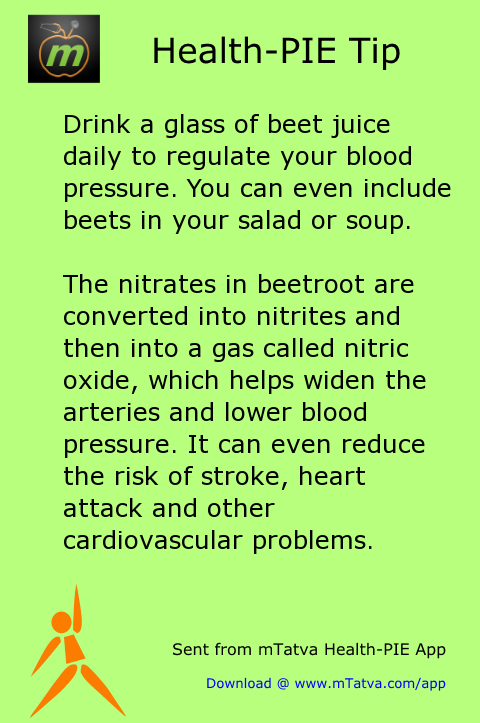
Drink a glass of beet juice daily to regulate your blood pressure. You can even include beets in your salad or soup.The nitrates in beetroot are converted into nitrites and then into a gas called nitric oxide, which helps widen the arteries and lower blood pressure. It can even reduce the risk of stroke, heart attack and other cardiovascular problems.
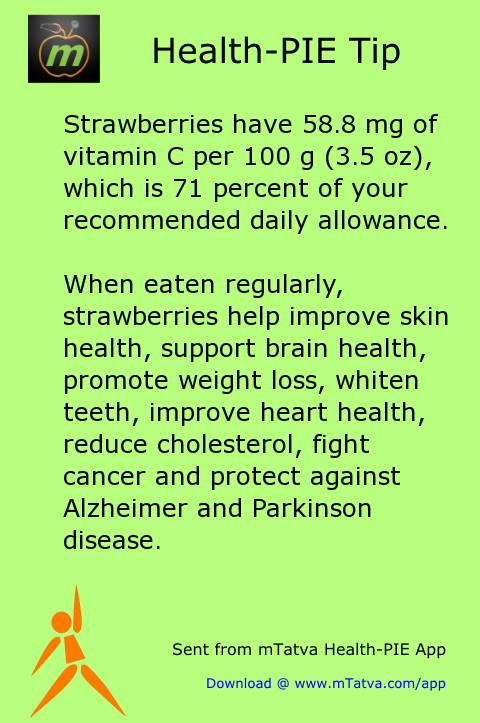
Strawberries have 58.8 mg of vitamin C per 100 g (3.5 oz), which is 71 percent of your recommended daily allowance.When eaten regularly, strawberries help improve skin health, support brain health, promote weight loss, whiten teeth, improve heart health, reduce cholesterol, fight cancer and protect against Alzheimer and Parkinson disease.
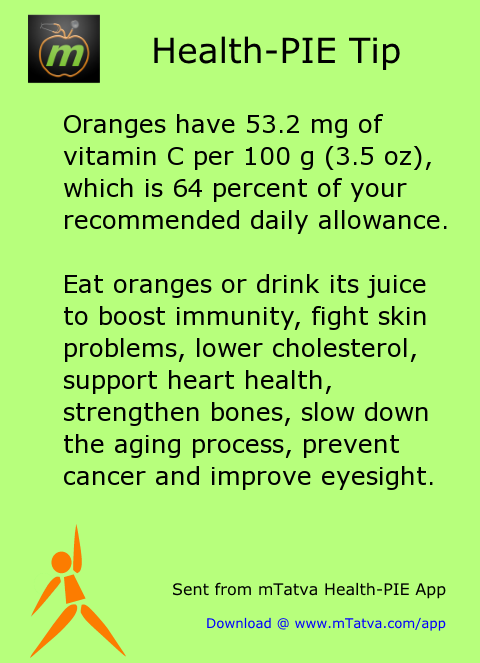
Oranges have 53.2 mg of vitamin C per 100 g (3.5 oz), which is 64 percent of your recommended daily allowance.Eat oranges or drink its juice to boost immunity, fight skin problems, lower cholesterol, support heart health, strengthen bones, slow down the aging process, prevent cancer and improve eyesight.
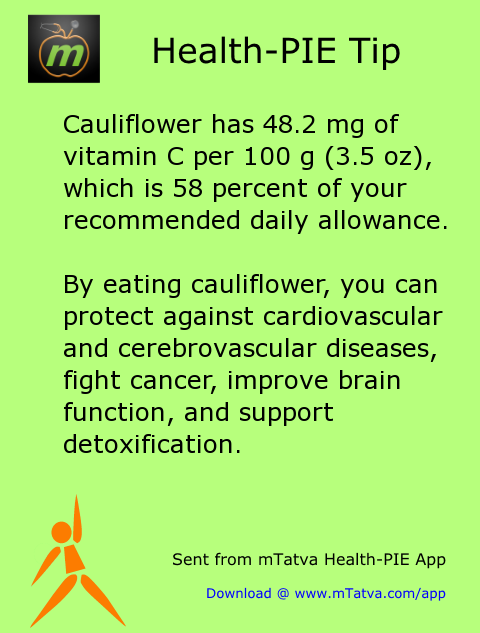
Cauliflower has 48.2 mg of vitamin C per 100 g (3.5 oz), which is 58 percent of your recommended daily allowance. By eating cauliflower, you can protect against cardiovascular and cerebrovascular diseases, fight cancer, improve brain function, and support detoxification.
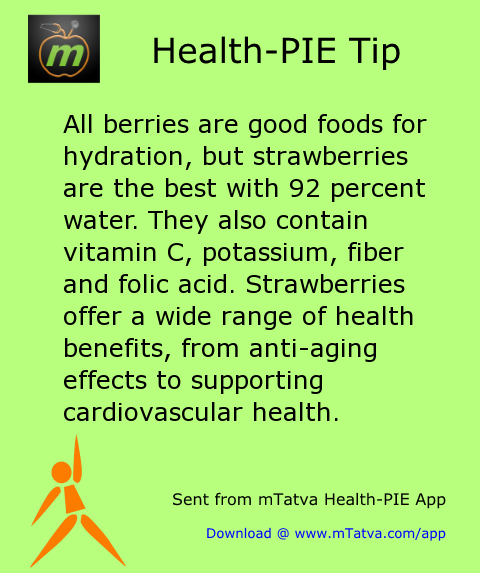
All berries are good foods for hydration, but strawberries are the best with 92 percent water. They also contain vitamin C, potassium, fiber and folic acid. Strawberries offer a wide range of health benefits, from anti-aging effects to supporting cardiovascular health.
